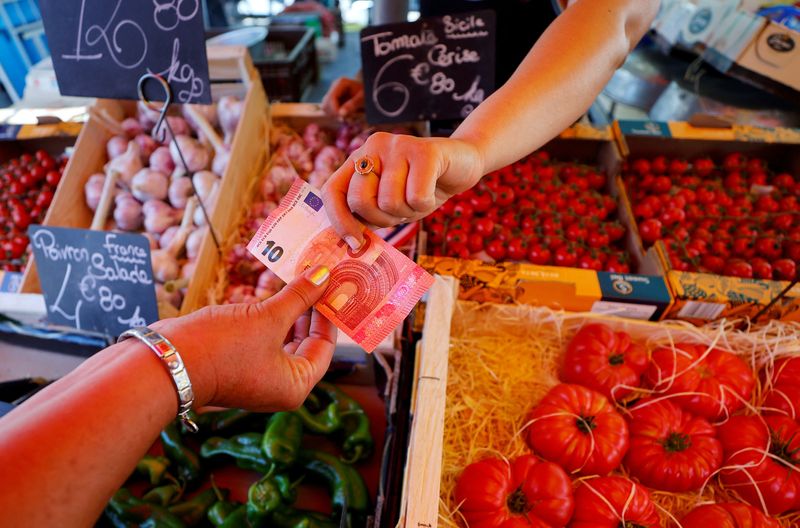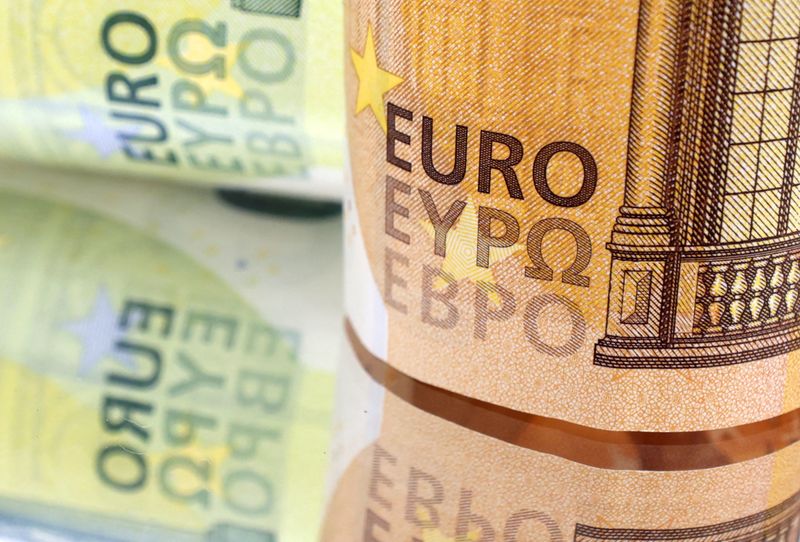By Dhara Ranasinghe
LONDON/SINGAPORE (Reuters) -The euro skidded while stock and bond futures slipped on Monday, as French President Emmanuel Macron called a shock election after being trounced in the European Union vote by the far-right.
The euro fell 0.3% in early-morning trade in Asia to a one-month low of $1.0764 and slumped to a 21-month trough of 84.60 pence.
EuroSTOXX 50 equity futures dipped 0.4% and French bond futures edged down to extend a steep drop from late last week. The focus for investors when broader European markets open later on Monday will likely be Italy's 10-year government bond yield gap over benchmark German paper - often a good barometer of risk appetite in the region.
Centre, liberal and Sociality parties were set to retain a majority after European Parliament elections, but eurosceptic nationalists made the biggest gains in Sunday's vote, raising questions about the ability of major powers to drive policy in the bloc.
Making a risky gamble to reestablish authority, Macron called a parliamentary election with the first round on June 30.
If the far-right National Rally party wins a majority, Macron would be left without a say in domestic affairs.
"That is probably somewhat bad news for markets," said Berenberg chief economist Holger Schmieding.
"It introduces an unexpected element of uncertainty."
Britain holds a general election on July 4 and crucial U.S. elections take place in November, while markets have lately turned fragile as U.S. rate cut expectations have dimmed.
"The prospects of a far-right victory in France's snap elections may keep the euro under pressure in the near term," said Mansoor Mohi-Uddin, chief economist at Bank Of Singapore, though U.S. data and policy will be the main driver.
WAKE-UP CALL?
While the euro and euro area assets have been largely cushioned by diminished euro-scepticism compared with elections in the 2010s and early 2020s, the results and surprise reaction from France could be a wake-up call.
Europe's broad STOXX 600 share index, which has been trading near record highs, could also be vulnerable, as could the spread between German and Italian 10-year bond yields, which was around 133 basis points late on Friday.
"Obviously, the snap election is a new source of uncertainty, which should have some negative impact on economic and market confidence, at least in France," said Jan von Gerich, chief market analyst at Nordea.
But he noted that EU election results do not always translate into domestic election results, due to different election systems and as European elections tend to attract a larger protest vote.
Peter Cardillo, chief market economist at Spartan Capital Securities in New York, said it would take a huge surge to the far right for the euro to weaken substantially.
The European Central Bank last week delivered its first rate cut in five years and the currency is down almost 2.5% on the dollar this year, mostly driven by the relative outlooks for interest rate cuts in the euro area and United States.

In France, where concern about the country's high debt levels have grown this year, the implications of renewed political uncertainty for the economy could also be in focus.
Standard & Poor's last month cut its rating on France's sovereign debt, delivering a painful rebuke of the government's handling of the strained budget days before the EU election.
